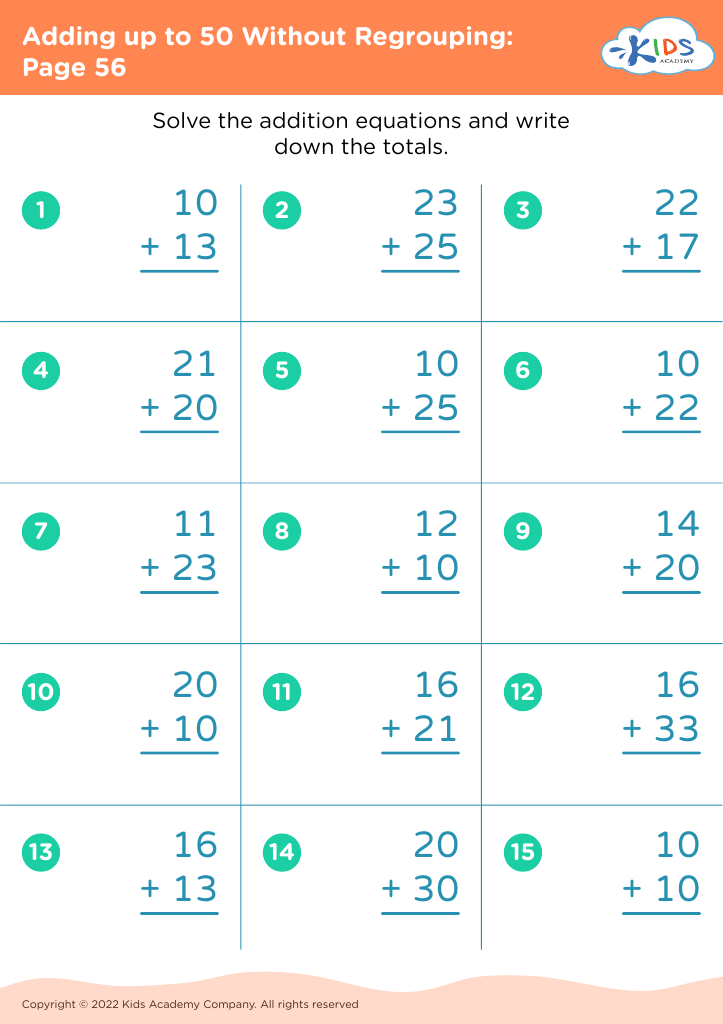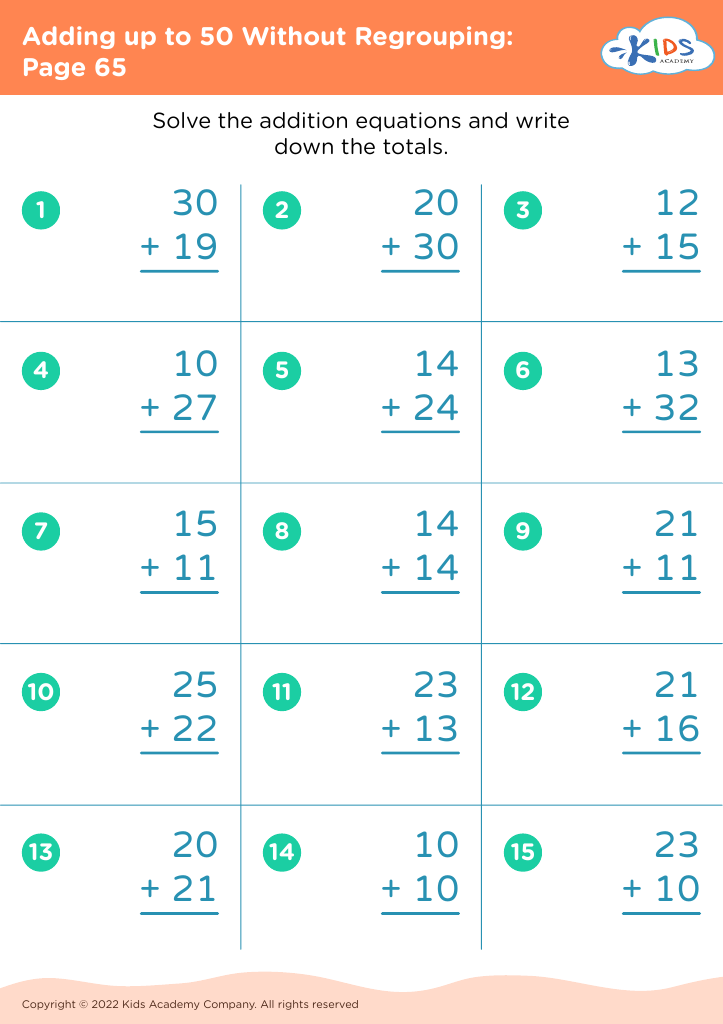Compare fractions Addition Worksheets for Ages 5-7
5 filtered results
-
From - To
Enhance your child’s mathematical skills with our engaging Compare Fractions Addition Worksheets designed for ages 5-7. These worksheets focus on building a strong foundation in fraction comparison and addition through interactive and visually appealing exercises. Young learners will enjoy practicing essential math concepts in a fun way, helping them to understand how to compare fractions and add them accurately. Each worksheet promotes critical thinking and reinforces learning with colorful illustrations and clear instructions. Perfect for classroom use or homework, these resources are an excellent tool for parents and teachers aiming to strengthen students’ fractional understanding. Start your child's math journey today!
Teaching young children about comparing fractions and mastering addition is fundamental for several reasons. Firstly, children's understanding of fractions lays the groundwork for their future mathematical skills. Ages 5-7 are critical years during which cognitive abilities rapidly develop. By introducing them to comparing fractions, children learn not only how to identify differences in size but also develop essential problem-solving strategies.
Moreover, proficiency in adding fractions enhances their abilities in other areas of mathematics. It helps reinforce concepts of whole numbers, equivalence, and part-whole relationships, which are crucial for more complex mathematical topics in later grades. As children grasp the concept that fractions represent parts of a whole, they improve their analytical thinking skills, allowing them to approach problems from various angles.
Parents and teachers should care about this aspect of education because it influences children’s confidence in their mathematical abilities. A strong foundation in fractions encourages a positive attitude toward math, reducing anxiety about the subject in the future. Additionally, engaging in this learning process fosters critical thinking and reasoning, crucial skills not just for mathematics but for real-world situations. In nutshell, understanding and mastering comparing fractions and addition is pivotal in nurturing a child's overall academic development.






















